Bîrûn Ensemble | Music compositions of Prince Demetrius Cantemir (1673—1723)
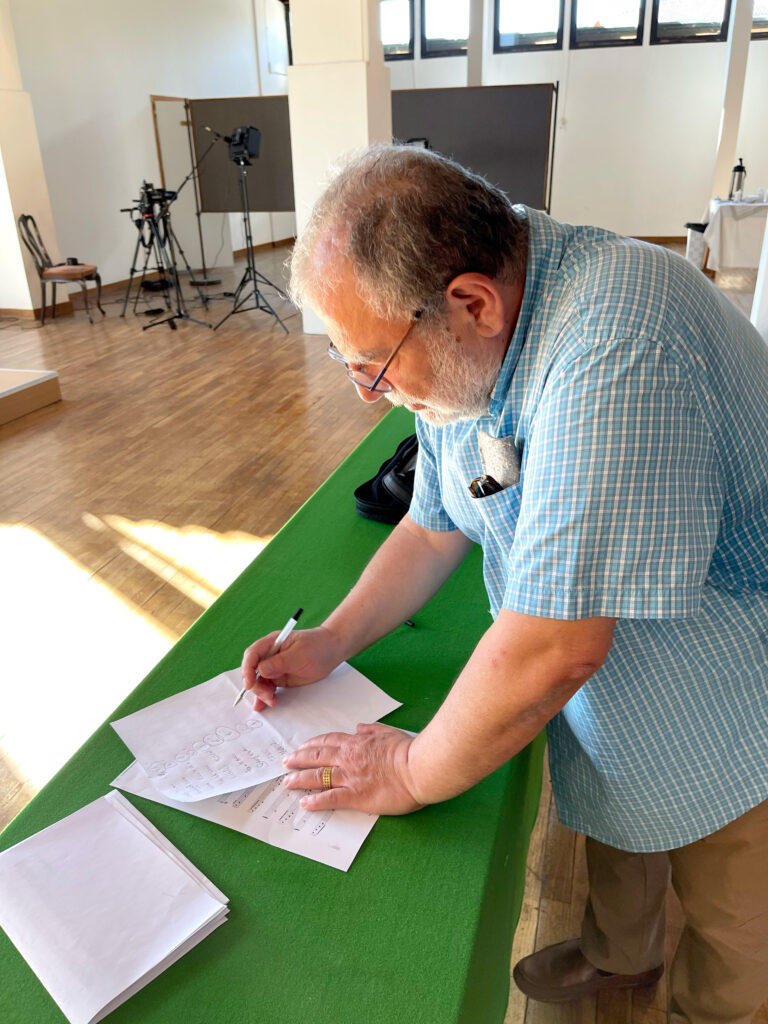
Kudsi Erguner
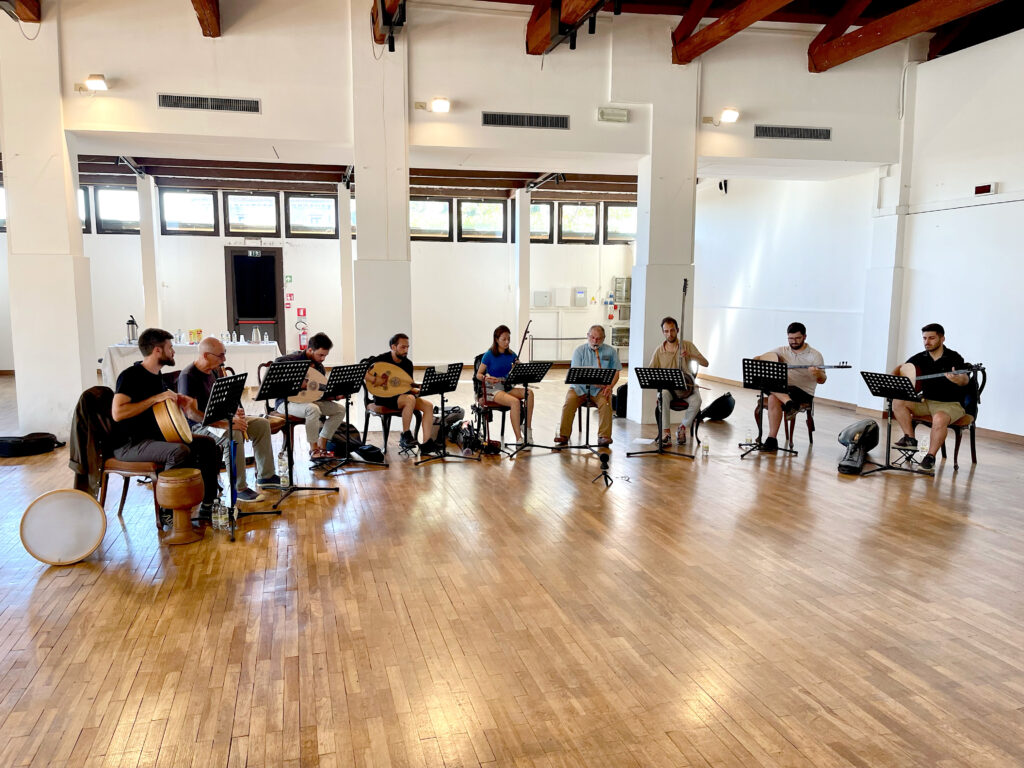
Bîrûn Ensemble 2022
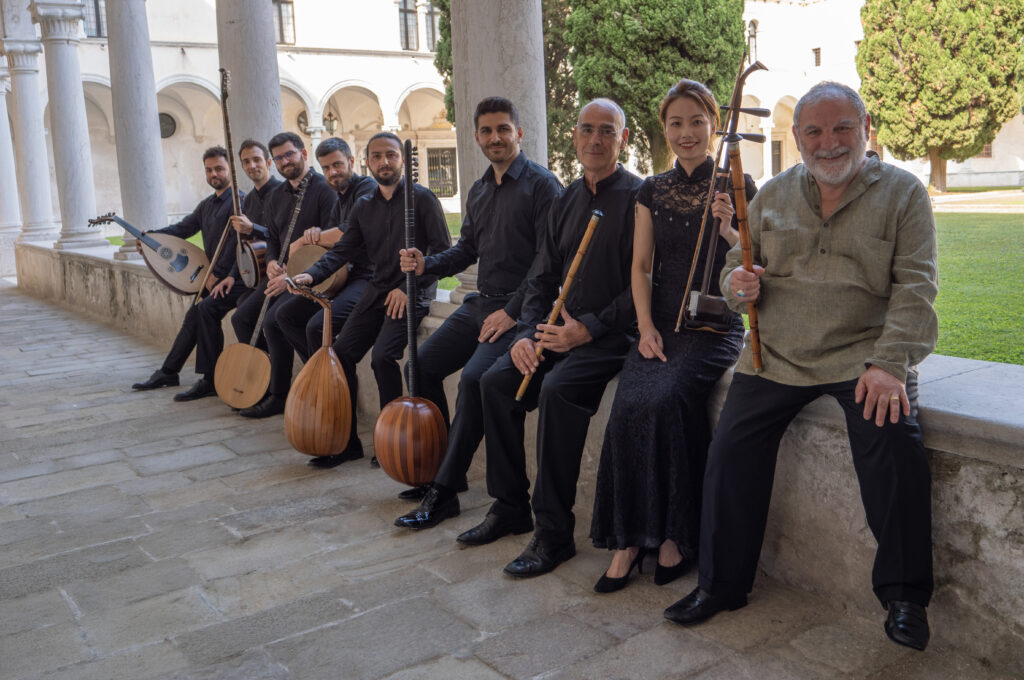
Bîrûn Ensemble 2022
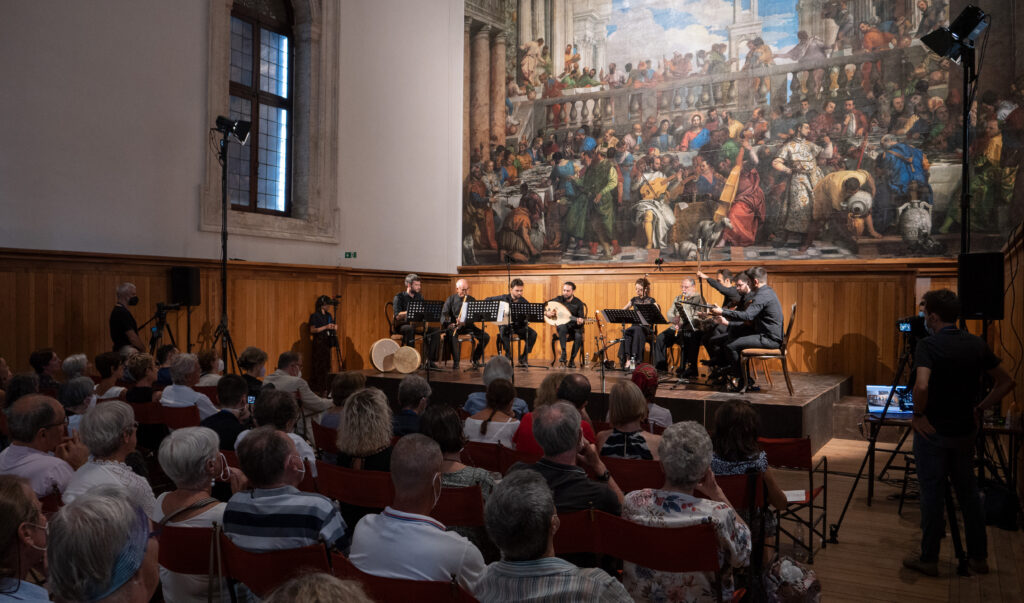
Bîrûn Ensemble 2022
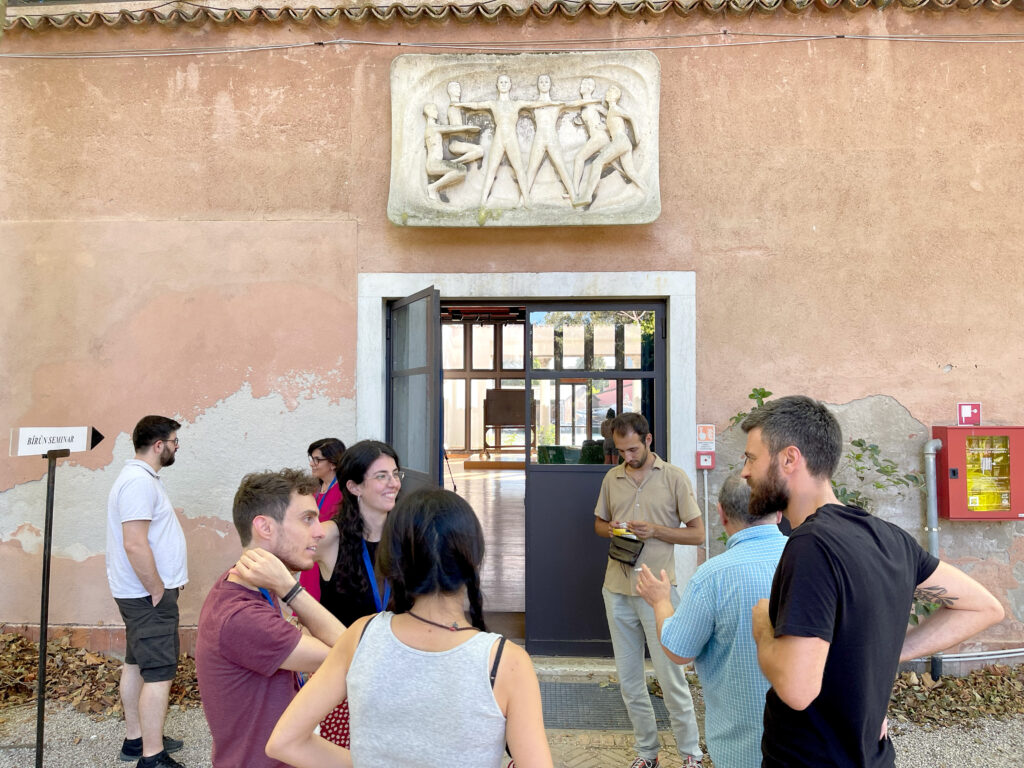
Bîrûn Ensemble 2022
The concert ‘Music compositions of Prince Demetrius Cantemir (1673—1723)’, directed by Kudsi Erguner was held at the conclusion of the ninth edition of the Seminar of the series Bîrûn.
The series takes its name from the Ottoman term referring to the “outside”, the “periphery”, opposed to the inner part of the sultan’s palace (Enderûn). As Kudsi Erguner explains: «Until the 19th century Ottoman classical art had developed in the Enderûn and among the Ottoman elite. Today there is no longer an elite in the palace and the art of music has migrated to the Bîrûn, where once more has found its devotees. In this sense, Venice is an ideal place for the history of the past to become the history of the present». Participants are young professional and semi-professional musicians who are awarded scholarships to work with Erguner for a week in San Giorgio, studying performance of manuscripts of the Classical Ottoman musical tradition. Writes Erguner: «Purpose of the Seminar is to enable the participants to explore the variety of Ottoman art music. Unfortunately, because of a misconception, today this legacy is still called “Turkish classical music”. But it is actually the classical music of many different peoples who shared a common history within the Ottoman empire».
The seminar in 2022 was devoted to the compositions of the Moldavian Prince and musician Demetrius Cantemir, who lived for a long time at the Ottoman court in the 17th century. Writes Giovanni De Zorzi in his notes for the programme of the concert that Demetrius Cantemir (1673-1723), the son of Constantin Cantemir, Prince, and governor of Moldavia, was captured by the Ottomans in 1687 and held in Constantinople as a princely hostage. He thus grew up in the Ottoman metropolis, where he lived until 1710, being at home in the Greek Orthodox quarter of Fanar (or Fener) and at the Ottoman court. He cultivated his gift for music forging relationships with the nobility and Sultan Ahmed III (1673-1736) but most importantly with the greatest musicians and composers of the day, becoming a soloist on the tanbūr (long-necked lute).
Cantemir wrote a treatise entitled Kitâbu ‘Ilmi’l-Mûsikî ‘ala Vech’ al-Hurufât (“Book on the Science of Music according to Alphanumeric Notation”) presumably between 1700 and 1703. The treatise includes a theoretical section written in the Ottoman language devoted to art music (maqâm) followed by a lengthy demonstration section that includes three hundred and fifty-one instrumental pieces, mainly in the forms of peşrev and semâî, transcribed according to an alphanumeric notation system invented by Cantemir himself (perhaps revising that of the dervish mevlevî Osman Dede, 1642-1730). In addition to pieces by the leading authors of the time, Cantemir included in his collection pieces composed by himself, ex-novo, in a very personal, at times bizarre, style, which were the theme of the 2022 edition of Bîrûn.
Audiovisual documentation by Simone Tarsitani.
Concert
15 July 2022, h. 18
Cenacolo Palladiano, Fondazione Giorgio Cini, Venice
Ensemble Bîrûn 2022:
Kudsi Erguner, artistic direction and ney
Murat Avsar, tanbur
Abdullah Turgut, tanbur
Ibrahim Genc, ‘ud
Safa Korkmaz, ‘ud
Giovanni De Zorzi, ney
Muaz Cayhan, yayli tanbur
Sun Zheng, erhu
Alessandro Darsinos, percussions
